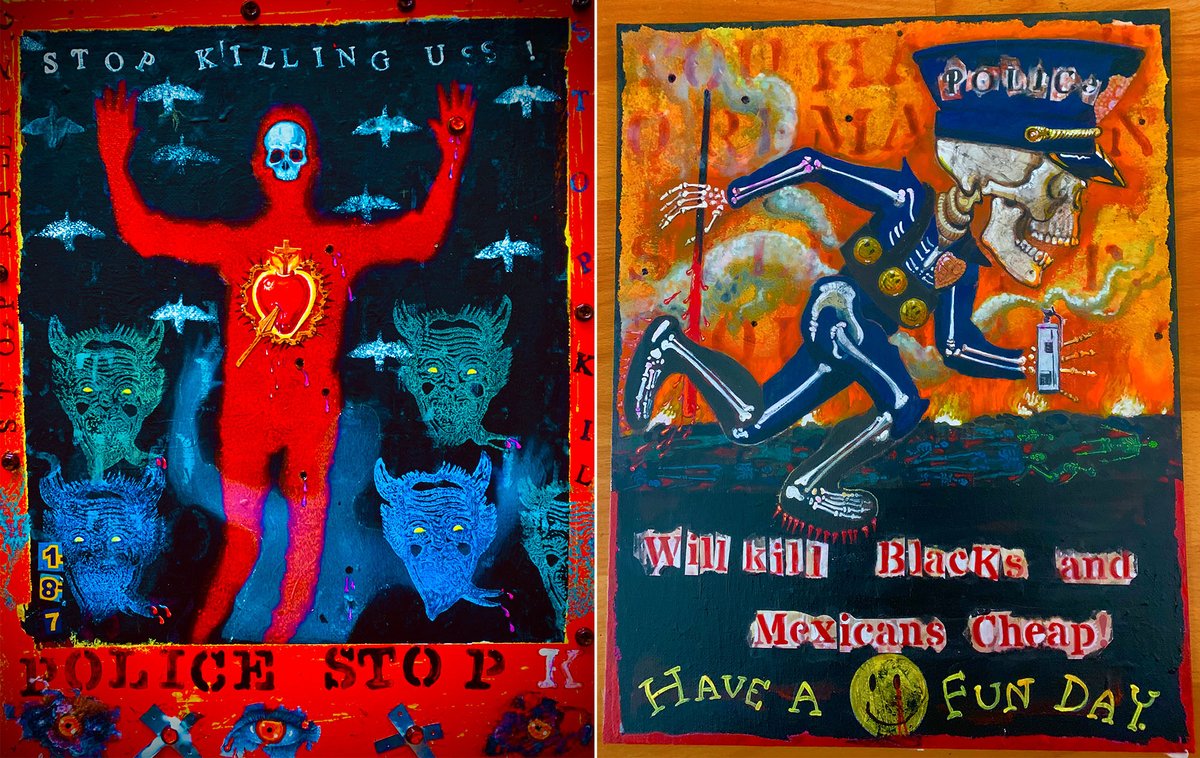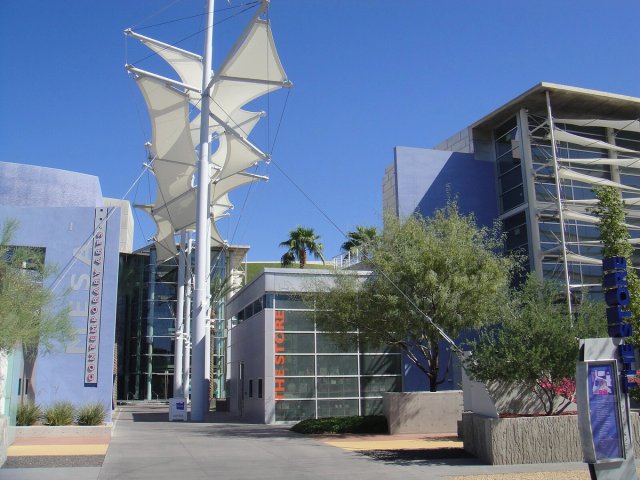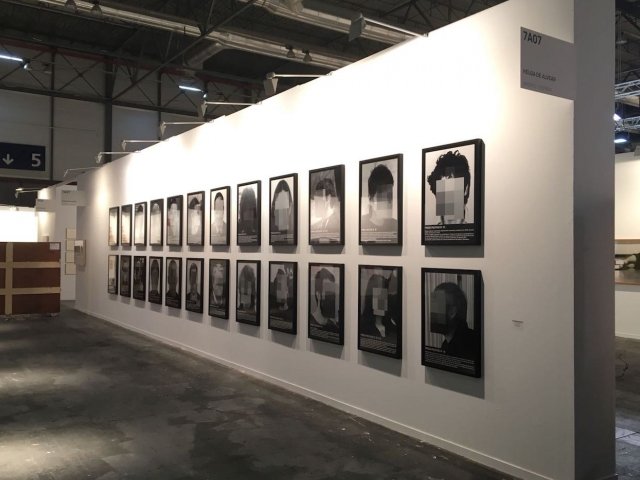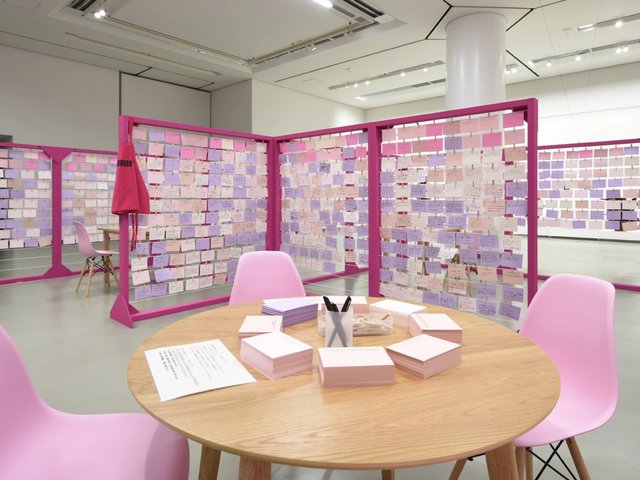A group of 20 paintings by California artist Diego Marcial Rios were selected for a six-week exhibition at San Mateo City Hall in California, starting on 17 July. Two days later, they were all taken down.
“Some of your paintings have caused concern amongst city employees both at city hall and at other facilities,” the artist was told in an email by the gallery coordinator for the San Mateo Public Library, where the exhibition was slated to go next. When he called that gallery coordinator, he says he was told that “the art made them feel unsettled”.Perhaps more to the point was an email the artist received from a reporter at Fox News Digital, asking for “a statement” regarding “the backlash from the San Mateo Police Department” to specific works in his exhibition.
Members of the municipal police department took offense to Rios’s paintings, particularly two that drew attention to instances of police killings of people of colour. One of them contains a red figure with his hands raised and a skull where a face would be under the words “Stop Killing Us”; the other shows a skeletal police officer holding what looks like a taser while running above the words: “Will Kill Blacks and Mexicans Cheap!”
San Mateo is a city of around 100,000 in the Bay Area, just south of San Francisco; its representatives in the state legislature and US House of Representatives are all Democrats.
Rios joins a growing list of artists whose works have been censored because the content offended certain groups. A public art video piece by Evan Apodaca, installed at the San Diego International Airport this past February and expected to remain on view through August, was removed after one month, allegedly due to its expression of critical views of the US military—or, as the San Diego Regional Airport Authority stated, the completed work “did not match the proposal” that the artist had submitted. Also in February, Macalester College in St Paul, Minnesota temporarily closed an exhibition of sculptures and drawings by feminist Iranian American artist Taravat Talepasand that depicted bodies of Muslim women wearing hijabs or niqabs after some Muslim students objected to the images as mocking Islam. (After a weekend of furious debate, during which the artist’s work was shrouded by black curtains, the college reopened the exhibit with a content warning and frosted glass on some of the gallery windows.)
“There has been an increase in instances of censorship of the visual and performing arts in recent years,” said Elizabeth Larison, director of Arts and Culture Advocacy for the National Coalition Against Censorship, a New York City-based nonprofit organization that promotes freedom of thought and advocates against censorship. Government agencies that may have approved the exhibition of certain artists’ works “show a great aversion to controversy and are quick to pull artwork that may have offended, in some cases, just one person”.
She added that “no one has the right to be protected from offense. You don’t want a culture of offended people who look to censor everyone else.”
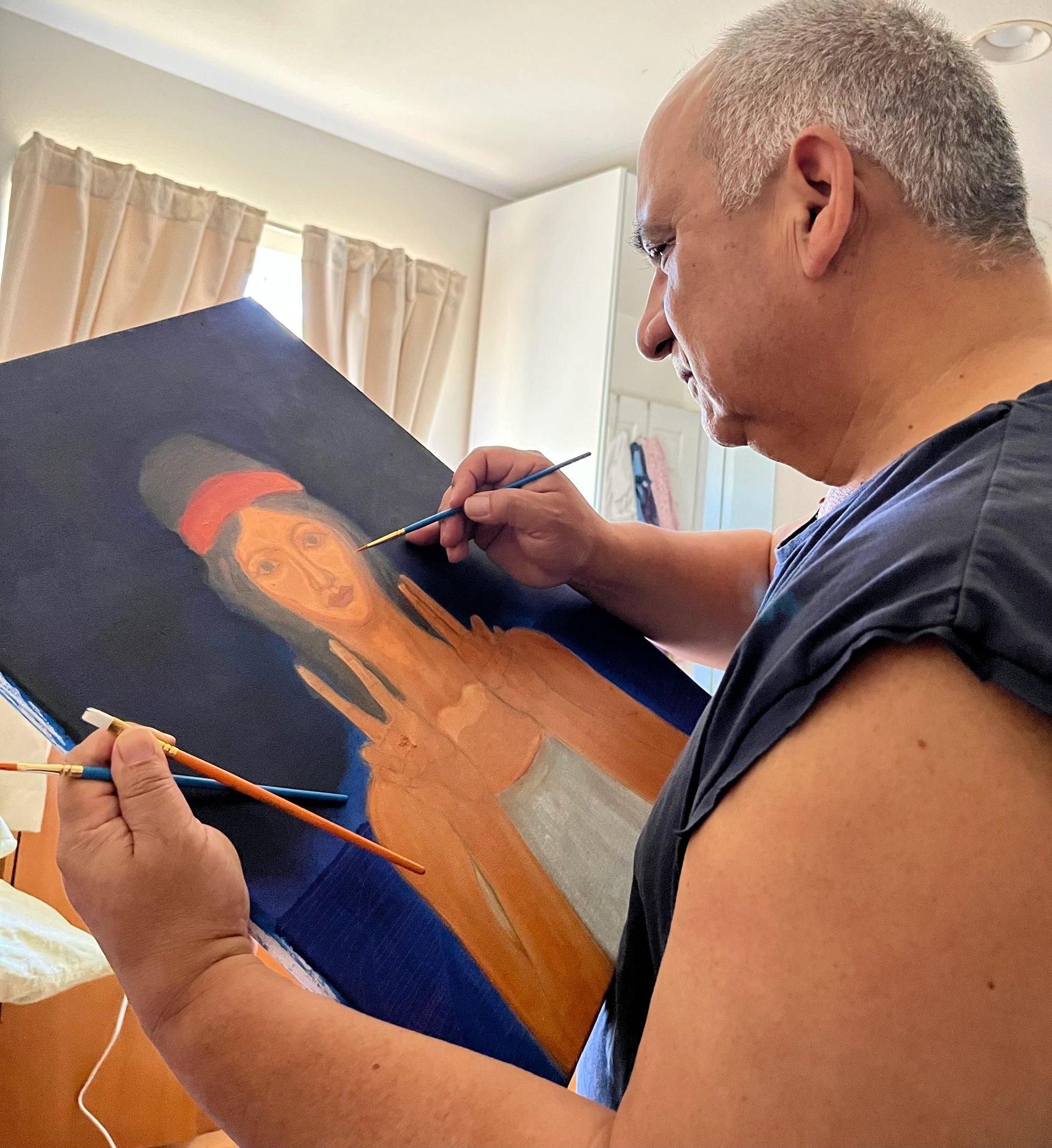
Diego Marcial Rios at work in his studio Courtesy the artist
Rios had been chosen by a selection committee to exhibit his work after responding to an open call to artists in the San Mateo area for the chance to show both in the city hall gallery and the main branch of the municipal library as part of its public art exhibition programme. “Diego Marcial Rios applied for the programme and submitted a limited sampling of his work before being selected to participate,” interim San Mateo city manager Christina Horrisberger said in a statement to The Art Newspaper. “Much of the artwork he hung at city hall had not been seen by the committee or city staff prior to it being displayed, including several pieces of work with a variety of strong political connotations.”
She added that “City Hall is intended to be a welcoming place”, but Rios’s work clearly offended “numerous people in the community, including members of the public and staff from several departments throughout the organisation”. Those complaints led city officials to take the entire show down, suspending the exhibition programme so that it can be improved to create “a welcoming and respectful environment for people of all viewpoints”.
Rios said that he was made aware, on the second day of the show, of a certain discomfort with some pieces in the exhibition and was asked about “swapping them out for other artwork that is mutually acceptable” by the art gallery coordinator for the San Mateo Public Library.
“I’m a political artist,” he said, “but I’ll bend and swap things out if that makes people feel happier.” He asked which paintings should be “swapped out” but received no response and then learned that the entire display had been taken down. Rios claimed that this was his first experience of censorship, although not of making some viewers feel uncomfortable. “What is the police department so scared of?” he asked. Why the insecurity?”
Rios, who identifies as Chicano, is the son of Mexican migrant farm workers and earned an MFA in graphic design from the University of Wisconsin in 1988. His woodcut etchings and paintings are in the permanent collections of several museums in the US and Mexico, including the de Young Museum in San Francisco, the Madison Museum of Contemporary Art in Wisconsin and the Coos Art Museum in Coos Bay, Oregon.
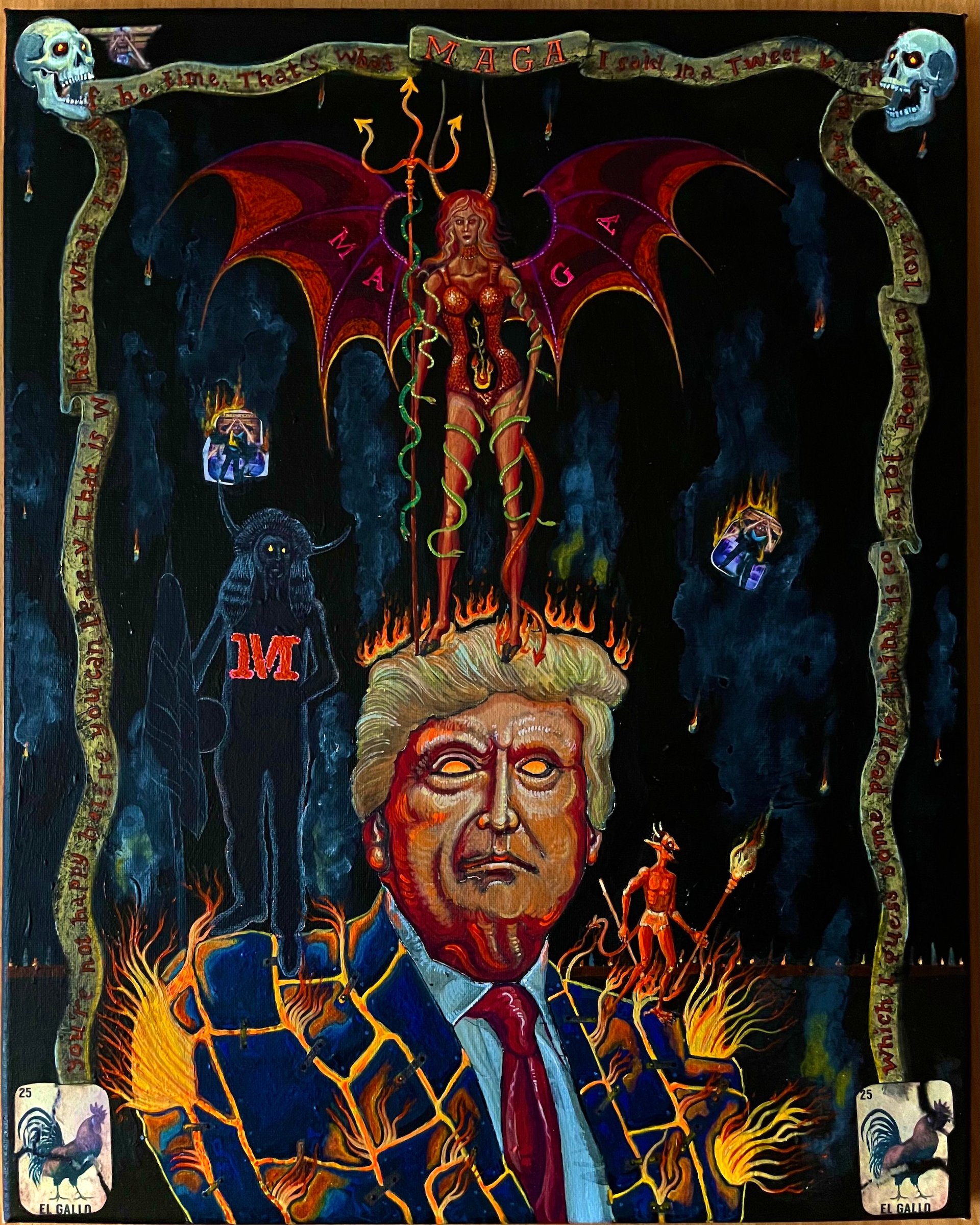
Diego Marcial Rios, Trump MAGA Demons, 2023 Courtesy the artist
Left-leaning political themes have been regular features of Rios’s work and may have been overlooked by the committee that selected him for the San Mateo exhibitions. A municipal spokesperson said that “Diego only submitted two samples of his artwork, which did not include the works with politically-sensitive content”, adding that “the committee did not review his website”.
Had they done so, they might have seen among the recent pieces displayed there a painting of former US president Donald Trump as a satanic monster (Trump MAGA Demons), one of a fire-breathing Florida governor Ron DeSantis (De Santis Woke Racist) and a painting of a flaming demon representing the US Immigration and Naturalization Services (INS Beast). A 2020 series of paintings, Trumpesito Set, all took aim at the former president.
Following the censorship of his exhibition, Rios has been contacted by a former San Mateo city councilman interested in acquiring the two works that offended members of the local police for his personal collection and “in support of your right to express your political viewpoints”.


